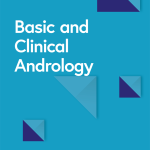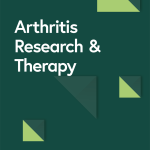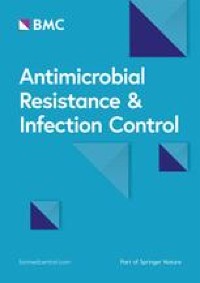This study investigates prior antimicrobial use among patients seeking treatment for urethritis symptoms to characterize and inform targeted interventions for improved antimicrobial stewardship and effective management of sexually transmitted infections. The key findings of this study offer valuable insights into the dynamics of prior antimicrobial use and its implications. Approximately one-third of individuals reported engaging in prior antimicrobial use before presenting at a health facility, with a noteworthy preference for specific antimicrobials such as amoxicillin, ciprofloxacin, and doxycycline. Less than a quarter of patients consumed two or more types of antimicrobials during prior-treatment, while the rest consumed just one type. Pharmacies emerged as the predominant source for obtaining these medications. We also observed an interesting association between prior antimicrobial use and a higher incidence of gonorrhea positivity, particularly evident in individuals who engaged in prior-treatment.
The revelation that approximately one-third of patients sought treatment for urethritis or cervicitis symptoms after engaging in prior antimicrobial use underscores a significant aspect of healthcare-seeking behavior in this population. This finding suggests a noteworthy level of autonomy in healthcare decisions in this population, highlighting the need for targeted patient education initiatives. A prevailing belief in Ghana indicates that self-medicating with purchased drugs is quicker and more cost-effective, particularly for minor ailments [18]. Thus, a significant proportion of individuals first treat their genital infections and only resort to clinical care when there is no improvement in their health condition. Data from this study also suggests that this tendency is demonstrated more in males than in females. Emphasizing the importance of seeking professional medical advice and testing before procuring medications.
The types of antimicrobials chosen by the patients also merit closer scrutiny. The identification of specific antimicrobials, such as amoxicillin, ciprofloxacin, and doxycycline, raises questions about the appropriateness of these choices for the targeted symptoms. These antibiotics were historically employed for gonorrhea monotherapy but have gradually lost effectiveness [19]. Current guidelines recommend dual therapy involving cefixime or ceftriaxone in conjunction with azithromycin or doxycycline, as endorsed by the World Health Organization [20].
Despite being classified in 2017 as prescription-only medicines by Ghana’s Food and Drugs Authority (FDA) [21], half of the drugs reportedly used in this study were obtained from pharmacists, raising concerns about adherence to existing regulations. In Ghana, the Health Professions Regulatory Body Act (857) of 2013, stipulates that only specific healthcare professionals should prescribe antimicrobials. However, legal structures to enforce adherence do not exist. Unauthorized groups, including licensed chemical sellers and traditional practitioners, contribute to the unauthorized sale of antibiotics [22].
Identification of pharmacists as the primary source for obtaining antimicrobials for symptomatic treatment of urethritis or cervicitis aligns with previous research and signifies a persistent and crucial aspect of healthcare access and medication distribution [23]. The convenience and accessibility of community pharmacies, especially for individuals seeking treatment for potential sexually transmitted infections, may contribute to the high percentage observed in this study. The influence of pharmacies on patient decision-making is noteworthy, and understanding the factors that drive patients to choose pharmacies is essential.
The unregulated use of antimicrobials in LMICs, such as Ghana, is influenced by factors like a lack of awareness regarding the long-term consequences of unchecked antimicrobial use on AMR, a shortage of qualified pharmaceutical staff, and economic pressures on drug retailers [24]. Administering antimicrobials before diagnostic evaluations may impede pathogen growth, leading to false-negative culture results and complicating treatment decisions [25]. Additionally, this practice may prove ineffective against the pathogen due to antimicrobial resistance, resulting in the unwarranted and excessive use of antibiotics. Notably, our study revealed significantly higher gonorrhea Nucleic Acid Amplification Test (NAAT) positivity among individuals reporting antimicrobial use before presenting at a health facility compared to those without prior treatment. This substantiates the ineffectiveness of most antimicrobials consumed before hospital presentation in treating the underlying infection. The AMR surveillance data gathered from the study participants detailed in this research reveals a concerning scenario with prevalence rates exceeding 80% for resistance to tetracycline, penicillin, and ciprofloxacin among N. gonorrhoeae specimens collected throughout the study period [17]. This underscores the critical necessity for heightened awareness among the Ghanaian public regarding the judicious use of antibiotics. The case of gonorrhea infections serves as a poignant example, signaling that the pathogen is teetering on the verge of becoming untreatable due to escalating antimicrobial resistance against commonly employed antibiotics. Urgent and concerted efforts are imperative to promote responsible antibiotic usage and curb the dangerous rise of resistance in the context of STIs.
Several limitations should be considered in interpreting the findings of this study. Firstly, the study questionnaire did not comprehensively address whether participants obtained antimicrobials with a prescription, leaving a gap in understanding the regulatory context of antimicrobial access. Additionally, the absence of information on whether study participants had been referred from other healthcare centers limits the contextualization of antimicrobial self-use among patients with urethritis/cervicitis. Furthermore, the study’s data was derived from a specific subset of the Ghanaian population, potentially impacting the generalizability of the findings to a broader demographic. Nonetheless, while confined to individuals exhibiting symptoms of Sexually Transmitted Infections (STIs) within a specific segment of the Ghanaian population, the findings from this study align with prior research on antimicrobial utilization across diverse patient cohorts. For instance, a study encompassing patients awaiting laboratory tests in the Ashanti and Eastern Regions, primarily for conditions like diarrhea, aches, pains, or urinary tract infections, reported a similar trend, with approximately a fifth disclosing prior antimicrobial use before seeking medical attention [8]. Notably, in that study, urine bioassays revealed a significantly higher antimicrobial activity rate (31.6%) than the self-reported treatment rates but comparable to the self-reported treatment rates observed in the current investigation. Unfortunately, the present study did not perform antimicrobial activity tests of patients’ urine for comparison. Such assay results could have helped confirm the reported antimicrobial use of study participants. These limitations underscore the need for caution in extrapolating the results and emphasize avenues for more extensive investigation, including a nuanced exploration of prescription practices and referrals in future studies.






Add Comment